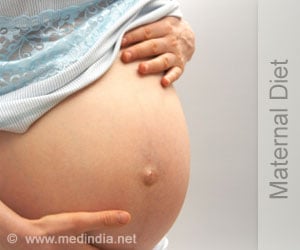Pregnancy-related complications such as high blood pressure, blood sugar, and low birth weight are more likely to happen in women with adverse childhood experiences.

The effect of multiple adverse childhood experiences on health: a systematic review and meta-analysis
Go to source).
‘Exposure to adverse childhood experiences increase the risk of pregnancy complications and adverse pregnancy outcomes. #ChildhoodTrauma #Pregnancy #LowBirthWeight’





These behaviors increase the risk of pregnancy complications including gestational diabetes mellitus (GDM), hypertensive disorder of pregnancy (HDP), excess gestational weight gain (GWG), depression/anxiety during pregnancy, and adverse pregnancy outcomes including low birth weight and preterm birth.Does Childhood Trauma Affect Pregnancy Outcome?
To explore this further, the researchers reviewed 32 relevant studies, published between 1994 and 2022. Three out of 4 were long-term (cohort) studies, with the remainder observational or comparative (case-control) studies.Most (19) were carried out in the USA. The rest were from Canada (3), Europe (6), and other regions (4). Study participants ranged in number from 48 to 11,556. Pooled data analysis of 21 studies showed that women who had experienced some form of childhood trauma were 37% more likely to have pregnancy complications than those who had not. They were also 31% more likely to give birth to underweight or premature babies.
Further in-depth analysis showed that childhood trauma was associated with a 39% heightened risk of pregnancy-related diabetes, a 59% heightened risk of antenatal depression, a 27% heightened risk of giving birth to an underweight baby, and a 41% heightened risk of preterm delivery (2✔ ✔Trusted Source
Adverse childhood experiences and lifetime adverse maternal outcomes (gestational diabetes and hypertensive disorders of pregnancy) in the Hispanic Community Health Study/Study of Latinos
Go to source).
Childhood trauma might alter the regulation of stress signaling pathways and immune system function; it might also change brain structure and function; or it might speed up cellular aging.
Advertisement
Prevent Pregnancy Complications From Childhood
Even previous research suggests that it’s also associated with a greater likelihood of risky behaviors in adulthood, including substance misuse, physical inactivity, and poor diet, all of which may influence the risk of pregnancy complications and outcomes.The researchers acknowledge that most of the included studies were from high-income Western countries so the findings may not be generalizable elsewhere, nor were they able to assess the potential impact of different types of childhood trauma (3✔ ✔Trusted Source
Adverse childhood experiences, the risk of pregnancy complications and adverse pregnancy outcomes: a systematic review and meta-analysis
Go to source).
Beyond screening for childhood trauma, the findings emphasize the importance of preventing [these events] in children to reduce immediate impacts as well as intergenerational transmission.
References:
- The effect of multiple adverse childhood experiences on health: a systematic review and meta-analysis - (https://www.thelancet.com/journals/lanpub/article/PIIS2468-2667(17)30118-4/fulltext)
- Adverse childhood experiences and lifetime adverse maternal outcomes (gestational diabetes and hypertensive disorders of pregnancy) in the Hispanic Community Health Study/Study of Latinos - (https://www.sciencedirect.com/science/article/abs/pii/S1047279720302854)
- Adverse childhood experiences, the risk of pregnancy complications and adverse pregnancy outcomes: a systematic review and meta-analysis - (https://bmjopen.bmj.com/content/13/8/e063826)
Source-Eurekalert















